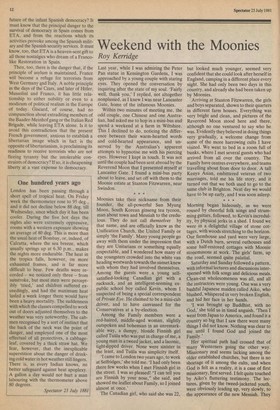One hundred years ago
London has been passing through a short spell of tropical heat. On Friday week the thermometer rose to 95 deg., and it did not decline below 88 deg. till Wednesday, since which day it has been cooler. During the five hot days the nights also were extremely oppressive, rooms with a western exposure showing an average of 80 deg. This is more than the usual heat of Bombay, or, indeed, of Calcutta, where the sea breeze, which usually springs up at 6.30 p.m., makes the nights more endurable. The heat in the tropics falls, however, on more exhausted frames, and is far more difficult to bear. Few deaths were recorded — we noticed only three — from sunstroke, but most men were perceptibly 'tried,' and children suffered exceedingly, and had the maximum heat lasted a week longer there would have been a heavy mortality. The suddenness with which the classes compelled to work out of doors adjusted themselves to the weather was very noteworthy. The cabmen recognised by a sort of instinct that the back of the neck was the point of danger, and employed one of the most effectual of all protectives, a cabbageleaf, covered by a thick straw hat. We fear, however, that the inexplicable superstition about the danger of drinking cold water in hot weather still lingers. There is, as every Indian knows, no better safeguard against heat apoplexy. A gallon a day would not hurt a man labouring with the thermometer above 80 degrees.
Spectator 23 July 1881


































 Previous page
Previous page